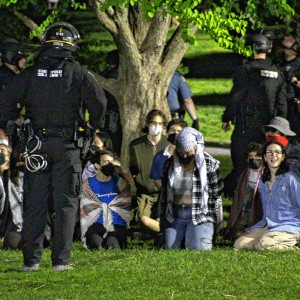Guest columnists Mark Reynolds and Linda Butler: Federal investments on climate a boon to state — our lawmakers should strive for more
| Published: 09-25-2023 4:43 PM |
One year after a major climate bill was passed, Massachusetts has begun to reap the benefits of an influx of clean energy investment and jobs.
When the 2022 Inflation Reduction Act was signed into law last August, it unleashed a stream of clean energy projects, which are bringing Massachusetts millions of dollars of investments in solar and wind energy (Worcester, Salem), green hydrogen (Devens), and EV technology (Marlborough, Methuen), among other initiatives. Massachusetts is also positioned to compete for further funding through the Inflation Reduction Act thanks to the launch of the Massachusetts Community Climate Bank under the leadership of Gov. Maura Healey.
With our abundant opportunities for offshore wind and plenty of solar energy potential (even while protecting our natural resources), Massachusetts is well positioned to embrace the fight to reduce climate pollution. In just one year, federal policy to support a clean energy transition has helped bring hundreds of jobs to our state. Meanwhile, the Department of Energy estimates that by 2030, the Inflation Reduction Act will bring an estimated $11.4 billion in investments in large-scale clean power generation and storage to Massachusetts.
All this investment illustrates how we can reap rewards for Bay State residents while tackling the most pressing issue of our time — escalating weather extremes due to the heat-trapping carbon pollution that we continue to release into the atmosphere, altering our climate.
Like many parts of the U.S., western Massachusetts has not escaped this summer’s climate extremes. We saw flooding in the Valley that devastated local farms. We were driven indoors by hazardous smoke from Canadian wildfires. In July, we suffered through the hottest month ever recorded in the commonwealth.
While such climate events can be overwhelming, the good news is that the U.S. is finally embracing tangible solutions to reduce the carbon emissions damaging our climate. What’s more, the solutions are boosting local wallets. The Inflation Reduction Act is packed full of incentives for people in Massachusetts, including a “clean energy bank account” to help low and moderate-income residents cut emissions while reducing household bills and improving air quality.
Some consumers are already taking advantage of tax savings adding up to more than $1,000 per year when purchasing electric cars, induction stoves, and energy-efficient appliances. Rewiring America has an online calculator at www.rewiringamerica.org/app/ira-calculator that can help you figure out how much money you can get with the Inflation Reduction Act.
Local homeowners, renters, businesses, nonprofits and city officials will soon have a great chance to learn about rebates, tax credits and other incentives, both state and federal, to help them cut costs and transition to clean energy. On Wednesday at 6:30 p.m., Westfield State University will host a public forum, “Climate Incentives for All,” sponsored by the Pioneer Valley Library Collaborative, Voices for Climate, and the university. This keynote event for Climate Preparedness Week will feature an expert panel discussion and Q&A, all of which will be livestreamed. To register or access the livestream, go to westath.libcal.com/event/10939744.
Article continues after...
Yesterday's Most Read Articles
 UMass graduation speaker Colson Whitehead pulls out over quashed campus protest
UMass graduation speaker Colson Whitehead pulls out over quashed campus protest
 ‘Knitting treasure’ of the Valley: Northampton Wools owner spreads passion for ancient pastime
‘Knitting treasure’ of the Valley: Northampton Wools owner spreads passion for ancient pastime
 More than 130 arrested at pro-Palestinian protest at UMass
More than 130 arrested at pro-Palestinian protest at UMass
 UMass student group declares no confidence in chancellor
UMass student group declares no confidence in chancellor
 South Hadley Town Meeting OK’s budget that lays off 24 school staff; nuisance bylaw tabled
South Hadley Town Meeting OK’s budget that lays off 24 school staff; nuisance bylaw tabled
 Host of road projects to begin Friday in Amherst
Host of road projects to begin Friday in Amherst
Please consider contacting Sens. Elizabeth Warren and Ed Markey and Rep. Jim McGovern to thank them for their support for the Inflation Reduction Act and for strong climate legislation generally. But we are just beginning our journey to use climate solutions to better the lives of the people of Massachusetts.
At this point on the journey, we cannot afford any backtracking. The climate policy progress we have already made must remain intact. With an election year around the corner, it may be tempting to play politics around the Inflation Reduction Act, or around the climate issue in general, but any efforts to roll back or redirect this critical climate investment would be ill-advised. Voters like us want — and expect — these benefits to continue to flow into our state.
This summer’s climate headlines have been deeply concerning, but the solutions to stop the escalating extremes are exciting.
As our legislators look to the future of our state, they should continue to ramp up our clean energy efforts, meeting the moment to reduce climate pollution while bringing good jobs and real-world benefits to the commonwealth.
Mark Reynolds is the executive director of Citizens’ Climate Lobby. Linda Butler is a volunteer with the Pioneer Valley chapter of Citizens’ Climate Lobby.

 Guest columnist David Narkewicz: Fiscal Stability Plan beats school budget overreach
Guest columnist David Narkewicz: Fiscal Stability Plan beats school budget overreach Columnist Bill Newman: Laurels and the laureate
Columnist Bill Newman: Laurels and the laureate  Rebecca Lee: Counter corporate capture
Rebecca Lee: Counter corporate capture Jim Reis: Northampton school budget — What went wrong?
Jim Reis: Northampton school budget — What went wrong?
